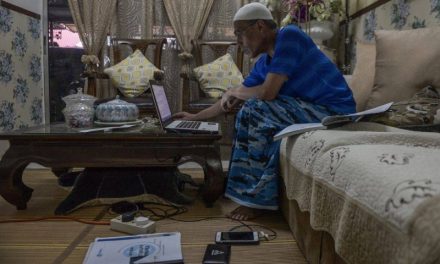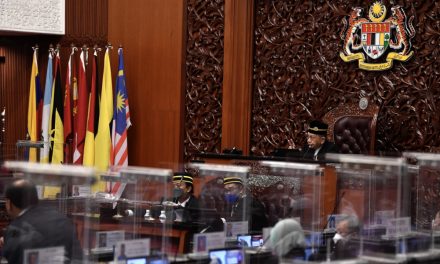KUALA LUMPUR | An increase in the minimum wage from the current RM1,200 to RM1,500 will only benefit foreign workers in the country, said Malaysian Employers Federation (MEF).
MEF executive director Datuk Shamsuddin Bardan said this was because foreign workers would send back the ‘surplus’ of their salaries to their home countries instead of spending their earnings here, thus not contributing to Malaysia’s economic growth.
“Many people have argued that an increase in the minimum wage would benefit Malaysians. However, this is inaccurate as the minimum wage is for those at the lower levels. (And) based on a study in 2018 on the impact of the minimum wage increase then, about 1.8 million workers had benefited from it. At that time, we had more than two million foreign workers and those who benefited from the increase in the minimum wage were foreign workers. Did they use their ‘surplus’ monies to boost the country’s economy? The answer is no because these foreign workers sent the money back to their home countries,” he said.
Shamsuddin was speaking in a discussion titled ‘Minimum Wage in Malaysia: What’s Next’ organised by the National Council of Professors (MPN) today.
Other panelists were economist Prof Dr Barjoyai Bardai from the Universiti Tun Abdul Razak Graduate School of Business as well as MPN president Prof Datuk Dr Raduan Che Rose.
Prof Dr Durrishah Idrus from Universiti Teknologi Malaysia served as the moderator.
Shamsuddin said it was reported that foreign workers in the country currently remit about RM34 billion annually to their countries of origin through official channels, with the amount possibly going up to RM70 billion via unofficial channels.
“Just imagine. If the amount was spent in Malaysia, it would help to boost the economy,” he said.
He said according to MEF’s calculations, for every RM100 increase in minimum wages, foreign workers would send back an additional RM4 billion annually.
“If we were to increase the minimum wage to RM1,500, there will be another additional increase between RM12 billion and RM16 billion.”
Shamsuddin added the proposed increase can be considered high given that neighbouring countries such as Indonesia and Cambodia had introduced a minimum wage adjustment of between one and 1.5 per cent.
He said with the current Covid-19 pandemic and recent floods, an immediate increase to RM1,500 will impact both employers and workers.
“Will employers be able to pay RM1,500 if the government decides that the new minimum wage is not an option?”
He also expressed concern that should the proposal materialise, it could lead to rising cost of living as additional costs to be borne by employers had to be passed on to consumers.
Shamsuddin’s sentiment was echoed by Barjoyai, who said the increase in minimum wage will add to the overhead costs of business operations.
“It makes businesses non-viable and might cause some to close down or pass on the costs to consumers in the form of price increases.”
He said it is best not to rush with the wage increase.
“In my opinion, this matter needs more in-depth study. Maybe we can also think of other initiatives apart from a minimum wage increase.”
Human Resources Minister Datuk Seri M Saravanan recently told Berita Harian that a new minimum wage of RM1,500 is expected to be implemented by year-end.
He, however, said the amount had yet to be finalised and is awaiting cabinet approval.
Previously, the Malaysian Trades Union Congress had urged the government to raise the monthly minimum wage from RM1,200 to RM1,500 and provide a minimum monthly cost of living allowance of RM300 for all employees.
Malaysia’s minimum wage for workers was last raised from RM1,100 to RM1,200 in February 2020.








